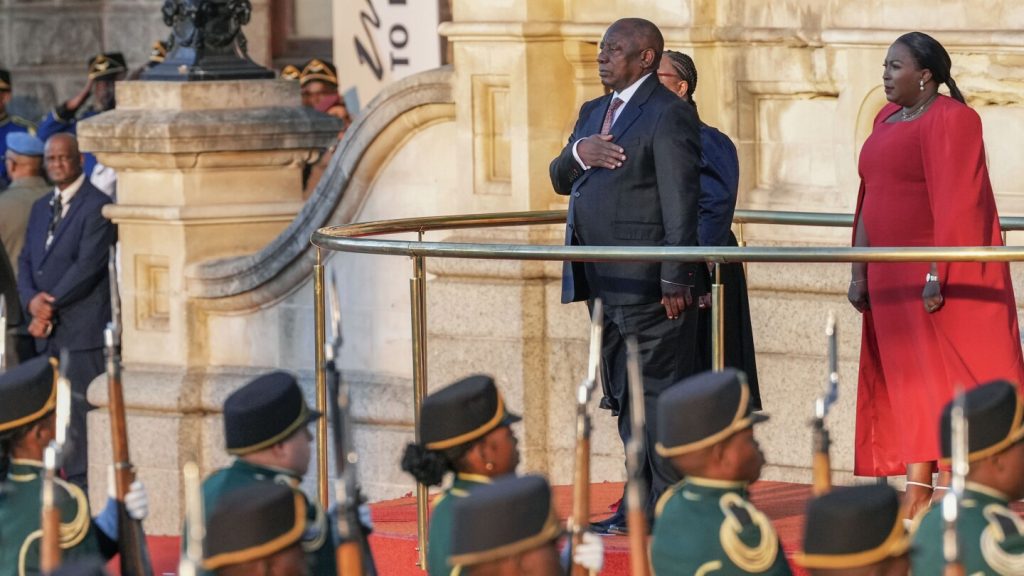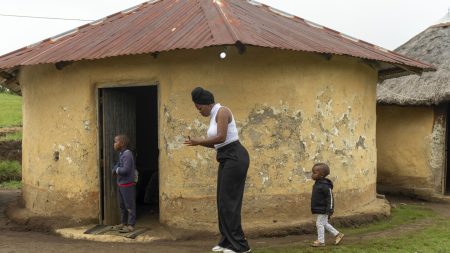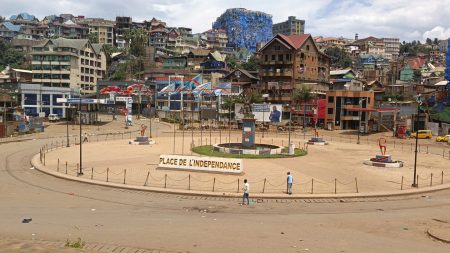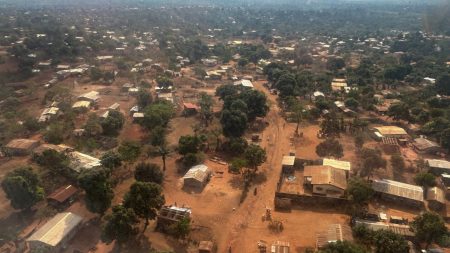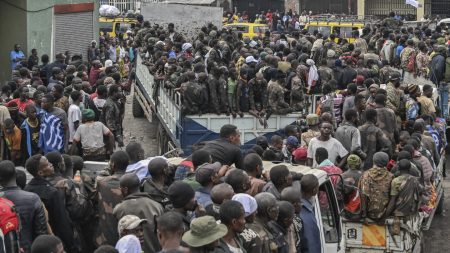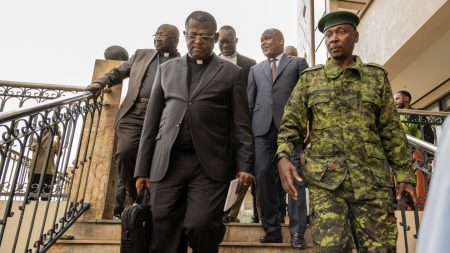A Nation’s Stand: South Africa’s Resolve Against External Pressures
Confrontation and Nationalism: A Global Stage
In a bold address to the nation, South African President Cyril Ramaphosa stood firmly against external pressures, notably those from U.S. President Donald Trump, who threatened to cut all funding to South Africa. Speaking at the State of the Nation address in Cape Town, Ramaphosa emphasized that South Africa would not be intimidated or swayed by such threats. His speech highlighted the rising tide of nationalism and protectionism globally, urging South Africa to navigate this challenging landscape with resilience and unity. The audience responded with enthusiasm, supporting the President’s commitment to sovereignty and democracy.
Criticism from Abroad: Trump and Musk’s Stance
President Trump’s criticisms, expressed on his Truth Social platform, centered on South Africa’s new land expropriation law, which he alleged targeted certain groups and violated human rights. However, Trump’s claims lacked specific examples, warranting a response from Ramaphosa’s government. Elon Musk, a South African native turned critic, echoed Trump’s sentiments, suggesting the law unfairly targeted the white minority. Despite these criticisms, the South African government maintained that the law aims to redistribute unused land for public benefit, with legal safeguards against arbitrary confiscation.
Understanding the Land Law: Context and Intentions
South Africa’s land expropriation law, passed last month, allows the government to reclaim land for public good, such as redistribution, with protections against unjust seizures. The government stressed that no land has been confiscated, countering Trump’s inaccuracies. This law is part of broader efforts to address historical injustices, aiming to foster equity and sustainable development without undermining property rights.
U.S. Aid Freeze: Challenges and Responses
Trump’s threats extended to a 90-day freeze on global aid, potentially impacting South Africa’s HIV/AIDS program, the largest in the world. Ramaphosa expressed concern over this move, which could disrupt critical health services. In response, South Africa is exploring alternative funding to maintain these essential programs, demonstrating its resolve to safeguard public health despite external pressures.
Domestic Focus: Investing in Infrastructure
Ramaphosa’s speech highlighted significant domestic initiatives, notably a $50 billion Infrastructure Investment Plan over three years. This plan aims to enhance South Africa’s infrastructure—building roads, bridges, dams, and modernizing ports and airports. The President emphasized how this investment would stimulate economic growth and create opportunities, signaling a commitment to domestic development despite international challenges.
Global Implications: Sovereignty and Diplomacy
This incident underscores the broader tension between national sovereignty and global influence. South Africa’s stance reflects a commitment to democracy and self-determination, pivotal in international relations. It also highlights the complexities of foreign aid and the need for robust domestic policies to mitigate external pressures. Ramaphosa’s approach not only addresses immediate challenges but also positions South Africa as a beacon of resilience and sovereignty on the global stage.





